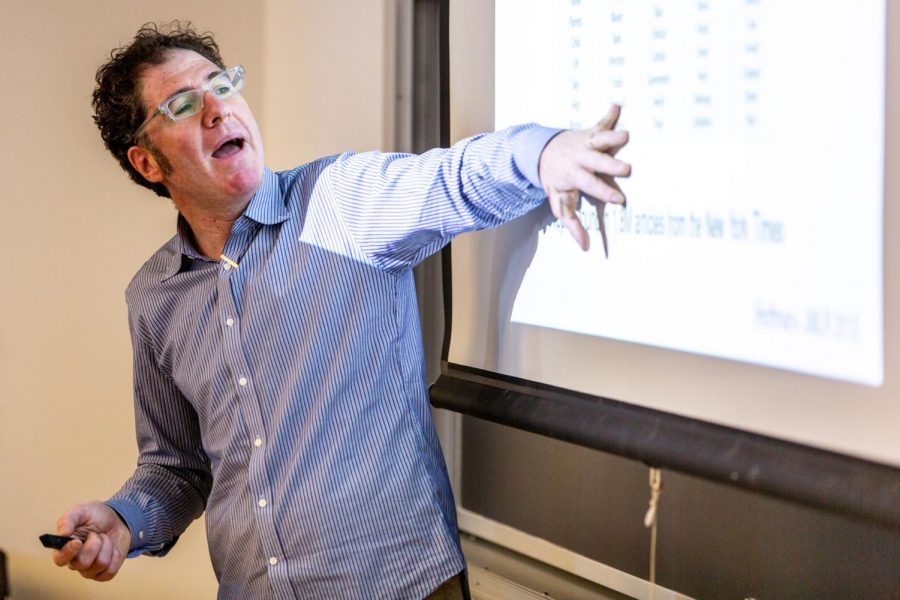Columbia professor presents ‘The Blessings of Multiple Causes’ at NU
David Blei, a professor of statistics and computer science at Columbia University, presents his research at NU.
February 27, 2019
Northeastern University’s Khoury College of Computer Sciences hosted David Blei, a professor of statistics and computer science at Columbia University, as a distinguished speaker Friday in a lecture titled “The Blessings of Multiple Causes.” Blei presented research done by himself and his Ph.D. student Yixin Wang on performing causal inference in multiple-cause scenarios using what he refers to as the “deconfounder.”
Deconfounders are methods that determine the extent to which one thing is the cause of another using weaker assumptions than classical methods, and are relevant in fields like the social sciences where it is difficult to control for possible causes. Blei emphasized how complicated data is in the modern world.
“We have people that connect to each other, that send messages to each other, they’re clicking on those messages et cetera et cetera, these are all ways data is [more] complicated than it was 20 years ago,” Blei said.
Blei used data about movies to study causal effects of actors, like Meryl Streep affecting movie revenue. He showed that this question can take advantage of deconfounders because it is not a “classical causal problem” but one with multiple causes where an actor is only one possible factor.
Blei said that his general field, probabilistic machine learning, builds methods that connect domain knowledge to data we collect about the world; that answers the question, “What does it mean to make sense of data?”
“Traditionally in machine learning it means something about making a prediction about the future … most ambitiously we might want to do real science: confirm, elaborate or form causal theories,” Blei said. “Or put in plain English, I want to know how the world works based on this data. I want to ingest this data about Facebook and I want to understand something about how people connect and form relationships.”


















